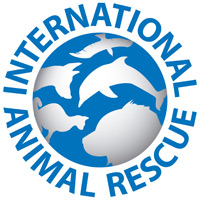Related Research Articles

Shannon Elizabeth Fadal is an American actress and poker player. A sex symbol and teen idol of the 1990s and 2000s, Elizabeth is best known for her roles in the films American Pie, American Pie 2, Tomcats, Scary Movie, and Love Actually. She also starred in the films Jay and Silent Bob Strike Back, Thirteen Ghosts, Cursed, and Night of the Demons, played a recurring role in the sitcom That '70s Show and was a series regular in Cuts.

Nature conservation is the moral philosophy and conservation movement focused on protecting species from extinction, maintaining and restoring habitats, enhancing ecosystem services, and protecting biological diversity. A range of values underlie conservation, which can be guided by biocentrism, anthropocentrism, ecocentrism, and sentientism, environmental ideologies that inform ecocultural practices and identities. There has recently been a movement towards evidence-based conservation which calls for greater use of scientific evidence to improve the effectiveness of conservation efforts. As of 2018 15% of land and 7.3% of the oceans were protected. Many environmentalists set a target of protecting 30% of land and marine territory by 2030. In 2021, 16.64% of land and 7.9% of the oceans were protected. The 2022 IPCC report on climate impacts and adaptation, underlines the need to conserve 30% to 50% of the Earth's land, freshwater and ocean areas – echoing the 30% goal of the U.N.'s Convention on Biodiversity.

The Nature Conservancy (TNC) is a global environmental organization headquartered in Arlington, Virginia. As of 2021, it works via affiliates or branches in 79 countries and territories, as well as across every state in the US.

Marine conservation, also known as ocean conservation, is the protection and preservation of ecosystems in oceans and seas through planned management in order to prevent the over-exploitation of these marine resources. Marine conservation is informed by the study of marine plants and animal resources and ecosystem functions and is driven by response to the manifested negative effects seen in the environment such as species loss, habitat degradation and changes in ecosystem functions and focuses on limiting human-caused damage to marine ecosystems, restoring damaged marine ecosystems, and preserving vulnerable species and ecosystems of the marine life. Marine conservation is a relatively new discipline which has developed as a response to biological issues such as extinction and marine habitats change.
WildAid is an environmental organization based in San Francisco, California, United States.
The Cornell Lab of Ornithology is a member-supported unit of Cornell University in Ithaca, New York, which studies birds and other wildlife. It is housed in the Imogene Powers Johnson Center for Birds and Biodiversity in Sapsucker Woods Sanctuary. Approximately 250 scientists, professors, staff, and students work in a variety of programs devoted to the Lab's mission: interpreting and conserving the Earth's biological diversity through research, education, and citizen science focused on birds. Work at the Lab is supported primarily by its 100,000 members and supporters.

Conservation International (CI) is an American nonprofit environmental organization headquartered in Crystal City, Virginia, in Arlington County, Virginia.

The World Association of Zoos and Aquariums (WAZA) is the "umbrella" organization for the world zoo and aquarium community. Its mission is to provide leadership and support for zoos, aquariums, and partner organizations of the world in animal care and welfare, conservation of biodiversity, environmental education and global sustainability.
Best Friends Animal Society, (BFAS) founded in its present form in 1993, is an American nonprofit 501(c)(3) animal welfare organization based in Kanab, Utah with satellite offices in Atlanta, Georgia, Bentonville, Arkansas, Houston, Texas, Los Angeles, California, New York City, and Salt Lake City, Utah. It also has a partnership network with shelters, rescue groups and members in all 50 states and Washington, DC, to promote pet adoption, no-kill animal rescue, and spay-and-neuter practices. Best Friends has a 4-star 'Give With Confidence' rating from Charity Navigator.
Oceana, inc. is a 501(c)(3) nonprofit ocean conservation organization focused on influencing specific policy decisions on the national level to preserve and restore the world's oceans. It is headquartered in Washington, D.C., with offices in Juneau, Monterey, Fort Lauderdale, New York, Portland, Toronto, Mexico City, Madrid, Brussels, Copenhagen, Geneva, London, Manila, Belmopan, Brasilia, Santiago, and Lima, and it is the largest international advocacy group dedicated entirely to ocean conservation.

Michael Charles Tobias is an American author, environmentalist, mountaineer, and filmmaker. In 1991, Tobias produced a ten-hour dramatic television series, Voice of the Planet, for Turner Broadcasting; the series starred William Shatner. Tobias has written numerous books, most notably World War III: Population and the Biosphere at the End of the Millennium.
Leslie Iwerks is an American producer, director, and writer. She is daughter of Disney Legend Don Iwerks and granddaughter of Disney Legend Ub Iwerks, the animator and co-creator of Mickey Mouse and Oswald the Lucky Rabbit. She has directed films including Recycled Life which was nominated for an Academy Award and The Pixar Story which was nominated for an Emmy for best nonfiction special.

Bittu Sahgal is an environmental activist, writer, and the founder of Sanctuary Nature Foundation, an Indian nonprofit conservation organization that works on environmental policy, advocacy, science, on-ground support and habitat management. He is also the founding editor of Sanctuary Asia, a wildlife and ecology magazine.

The World Wide Fund for Nature (WWF) is a Swiss-based international non-governmental organization founded in 1961 that works in the field of wilderness preservation and the reduction of human impact on the environment. It was formerly named the World Wildlife Fund, which remains its official name in Canada and the United States. WWF is the world's largest conservation organization, with over five million supporters worldwide, working in more than 100 countries and supporting around 3,000 conservation and environmental projects. They have invested over $1 billion in more than 12,000 conservation initiatives since 1995. WWF is a foundation with 65% of funding from individuals and bequests, 17% from government sources and 8% from corporations in 2020.

Conservation photography is the active use of the photographic process and its products, within the parameters of photojournalism, to advocate for conservation outcomes.

International Animal Rescue (IAR) is a British wildlife protection and conservation non-profit organization. IAR aims to implement strategies which protect and mitigate the threats to wildlife and habitats.

The Frankfurt Zoological Society (FZS) is an international conservation organization founded in 1858 with headquarters in Frankfurt am Main, Germany. FZS focuses on maintaining biodiversity and conserving wildlife and ecosystems in protected areas and outstanding wild places. FZS leads and supports about 30 projects in 18 countries. Bernhard Grzimek, renowned German zoo director, zoologist, book author, editor, and animal conservationist in postwar West-Germany, served as president of the Frankfurt Zoological Society for over forty years.
Gunjan Menon is an Indian wildlife film director, camerawoman, and National Geographic Explorer.
Kip Andersen is an American filmmaker, producer, writer, entrepreneur, and the founder of Animals United Movement (A.U.M.) Films and Media, a 501(c)(3) organization which focuses on promoting awareness and equality for all life. He is known for his documentary films such as Cowspiracy: The Sustainability Secret, What the Health, and Seaspiracy.
References
- ↑ "Exempt Organizations Select Check: Dancing Star Foundation". irs.gov. U.S. Internal Revenue Service . Retrieved 7 March 2018.
- ↑ "Dancing Star Foundation – GuideStar Profile". guidestar.org. GuideStar . Retrieved 7 March 2018.
- ↑ "Charity Navigator – Unrated Profile for Dancing Star Foundation". charitynavigator.org. Charity Navigator . Retrieved 7 March 2018.
- ↑ Chumakov, Alexander Nikolaevich; Ilyin, Ilya Vyacheslavovich; Mazour, Ivan Ivanovich, eds. (2018). "Organizations: Dancing Star Foundation (DSF)". Global studies directory: people, organizations, publications. Value inquiry book series. Vol. 302. Leiden; Boston: Brill Rodopi. pp. 398–399. doi:10.1163/9789004353855. ISBN 9789004348479. OCLC 994296658.
- 1 2 "About the Foundation – Mission". dancingstarfoundation.org. Dancing Star Foundation. Retrieved 7 March 2018.
- ↑ "Book review: Sanctuary: Global Oases Of Innocence". Midwest Book Review. 2008. Retrieved 7 March 2018.
- ↑ Richards, Jennie (1 March 2016). "Documentary film Mad Cowboy, the story of Howard Lyman". humanedecisions.com. Retrieved 7 March 2018.
- 1 2 "Animal Protection – U.S. Sanctuaries". dancingstarfoundation.org. Dancing Star Foundation. Retrieved 7 March 2018.
- ↑ "Biodiversity Conservation". dancingstarfoundation.org. Dancing Star Foundation. Retrieved 7 March 2018.
- 1 2 "Stiles Program in Integrative Oncology". ccim.med.ucla.edu. UCLA School of Medicine. Archived from the original on 8 March 2018. Retrieved 7 March 2018.
- 1 2 3 4 Chawkins, Steve (26 February 2009). "Animal sanctuaries criticized over surge in euthanizations". Los Angeles Times . Retrieved 7 March 2018.
- 1 2 "Ex-employees claim CA sanctuary killing animals". CBS 5 News. 20 February 2009. Archived from the original on 28 February 2009. Retrieved 7 March 2018.
- ↑ Tanner, Kathe (19 February 2009). "Sanctuary is euthanizing animals to save money, ex-workers say; officials at Dancing Star shelter on north coast say actions are justified for health reasons". The Tribune (San Luis Obispo) .[ dead link ]